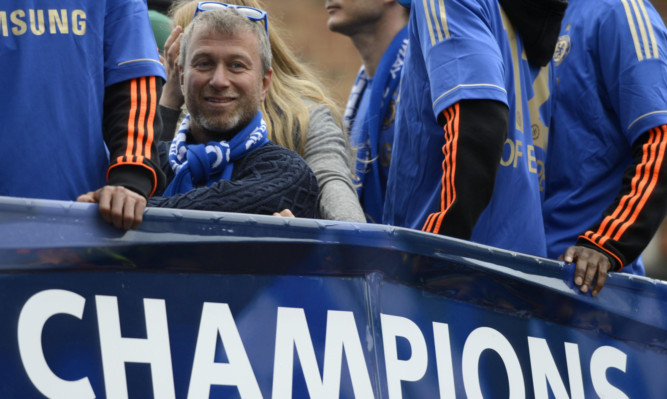
League titles and many nights of European glory, yes but apart from that?
There’s a famous scene in Monty Python’s Life of Brian when John Cleese’s character asks: “What have the Romans ever done for us?”
When it’s pointed out that they’ve brought sanitation, medicine, education, public order, irrigation, roads, fresh water and public health, Cleese responds: “Yeah but apart from that?”
On the 10th anniversary of the establishment of a different Roman empire, you can imagine Cleese’s response if he’d asked the question around Stamford Bridge.
“OK, there are three League titles, four FA Cups, two League Cups, two European trophies, some world-class players and a state-of-the-art training complex but apart from that?”
English football changed forever on July 1, 2003 when Roman Abramovich bought Chelsea from Ken Bates in a deal worth £140-million.
Abramovich, who’d made his billions in the Russian oil markets, wanted his own club after being seduced by the glamour of a Champions League game he’d watched at Old Trafford.
There have been times in the last decade when Chelsea fans have become unappreciative of their owner’s rule.
He’s sacked popular managers like Jose Mourinho, Carlo Ancelotti and Roberto Di Matteo, and appointed unpopular ones life Rafa Benitez and Andre Villas-Boas.
On occasion, he seems to have treated his purchase like a plaything, influencing transfer policy with his own vanity projects such as Andriy Shevchenko and Fernando Torres.
But the bottom line is it’s his money. So what if he’s wasted a bit of the £701.4-million he’s spent.
Like the grumbling populous in Roman times, deep down Chelsea fans know that without Abramovich, all those cup finals and nights of European glory would probably never have happened.
Back in 2003, the Premier League had just one foreign owner Fulham’s Mohamed Al-Fayed.
10 years on, there are 11. That’s another thing Roman has done for us. He showed you can buy success, so all manner of copycats followed.
Now all England’s biggest clubs Manchester United and City, Arsenal and Liverpool, as well as Chelsea have foreign owners. So do some with deep, historical tradition, like Aston Villa and Sunderland.
You can argue the toss about whether foreign ownership is good for the English game in the long term.
But Abramovich uncorked the bottle and there’s no getting the genie back in now.
And those who thought he’d quickly get bored with his toy have been proved wrong.

Enjoy the convenience of having The Sunday Post delivered as a digital ePaper straight to your smartphone, tablet or computer.
Subscribe for only £5.49 a month and enjoy all the benefits of the printed paper as a digital replica.
Subscribe